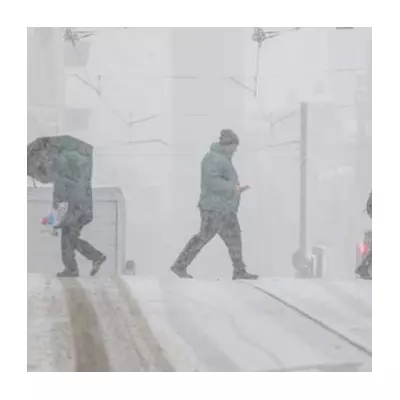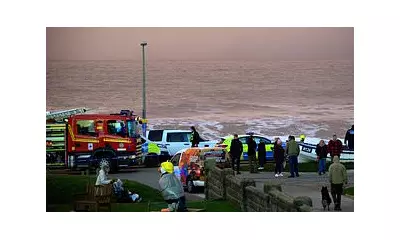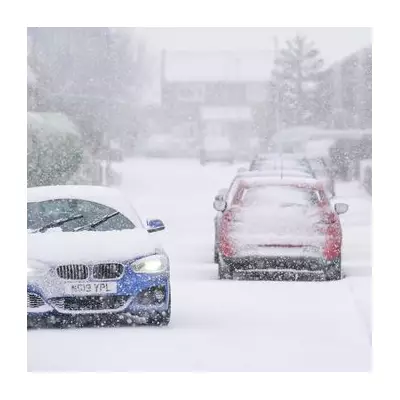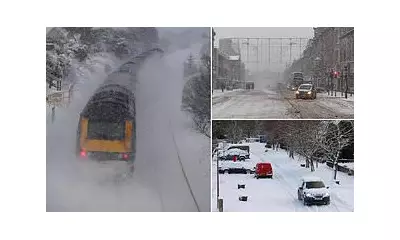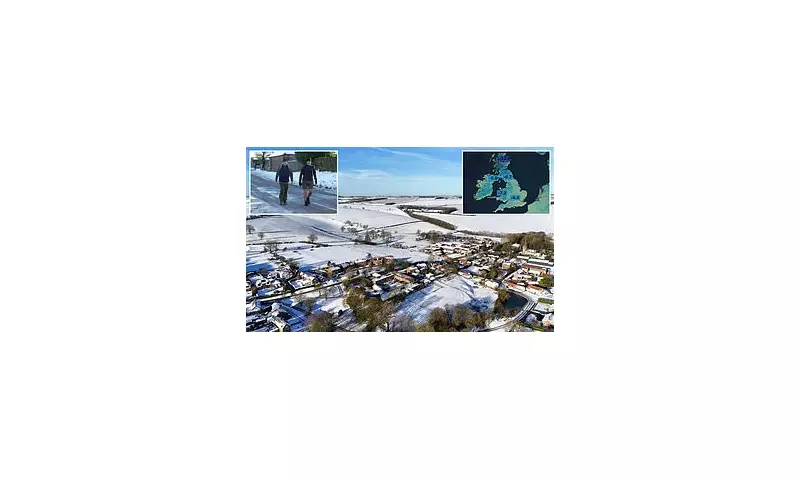
Britain is set for a dramatic weather turnaround this weekend as bitterly cold Arctic winds are replaced by wet and windy conditions from the Atlantic, following the coldest November night recorded in 15 years.
Dangerous Freeze Grips the Nation
The UK shivered through a severe cold snap this week, with thermometers plunging to a bone-chilling -12.6C (9.3F) overnight in Tomintoul, northern Scotland. This was not only the lowest temperature of this cold spell but also the UK's coldest reading since January 11.
The freezing conditions were felt nationwide, with temperatures dropping to -7.2C (19.0F) in Wales, -6.7C (19.9F) in England, and -6.0C (21.2F) in Northern Ireland. This widespread frost created dangerously icy conditions that disrupted education across several regions.
Dozens of schools remained closed today as wintry showers turned to treacherous ice. In Wales alone, 62 schools were shut across Pembrokeshire, Carmarthenshire, and Ceredigion. North Yorkshire saw six closures, while Aberdeenshire experienced significant disruption with 35 schools closed and a further 68 delaying their opening.
Health Alerts and Transport Chaos
The UK Health Security Agency maintained amber and yellow cold health alerts active until tomorrow morning, warning of the health risks posed by the prolonged freezing conditions. The Met Office had ice warnings in place until noon today.
The roadside assistance company RAC Breakdown reported its busiest day since January 13, with vehicle breakdowns spiking almost 50% above seasonal expectations. "The ongoing cold snap and freezing temperatures means our patrols are exceptionally busy," said RAC spokeswoman Alice Simpson, who also warned of increased risks from black ice as snow begins to melt.
Meanwhile, in a silver lining for winter sports enthusiasts, Cairngorm Mountain in the Scottish Highlands reported having enough snow to offer limited skiing and snowboarding this weekend.
Weekend Weather Shift: What to Expect
Meteorologists confirm that the weather is set for a notable transformation this weekend as milder but more unsettled conditions arrive. The transition begins tonight with the persistent northerly Arctic winds that have dominated the week giving way to a more westerly or south-westerly flow.
This change in wind direction will signal the arrival of Atlantic weather systems, bringing increased cloud cover and outbreaks of rain, particularly in western regions. Some higher ground could see a brief spell of snow before most of the UK falls under cloud and rain by tomorrow morning, though the South East might stay dry.
Met Office spokesman Ollie Claydon explained: "Temperatures are to become more mild for the time of year after this cold snap. Though it will be less cold rather than very mild - a return to normal, or average, temperatures."
Sunday's forecast remains uncertain, with the Met Office describing it as "more complicated, with significant uncertainty in the weather models." A secondary area of low pressure is expected to move in from the Atlantic, potentially bringing strong and gusty winds to the South West and showers or longer spells of rain to many areas.
Despite temperatures increasing to about 9C to 12C in the South West, the strength of the wind means conditions "won't feel much warmer than it has done recently," according to forecasters. This milder but unsettled weather pattern is expected to last at least until Thursday next week.

